Mental Health
35 Seemingly Harmless Things That Are Actually Rude
Published
12 months agoon

Shutterstock
In our daily interactions, we often engage in behaviors or say something without giving it a second thought. Some of these actions that have been ingrained in our routine over time may not seem harmful to us, but can be perceived as rude by those around us. Whether it’s the way we communicate or the attention we give to our devices, these patterns can inadvertently send the wrong message.
Here are 35 common habits that are actually considered rude. Recognizing and understanding the impact of these habits can help make sure we don’t accidentally upset others.
Leaving Your Shopping Cart Unattended

Shutterstock
Leaving your cart unattended while shopping might not seem like a significant issue, especially if focused on finding a specific item. This action can actually create bottlenecks and impede the flow of foot traffic if the cart is in the in the middle of an aisle. This causes frustration and inconveniences others that are now forced to navigate the space around you. Being mindful of your surroundings and making way for others is a basic aspect of courteous behavior in shared spaces.
Wearing Strong Fragrance
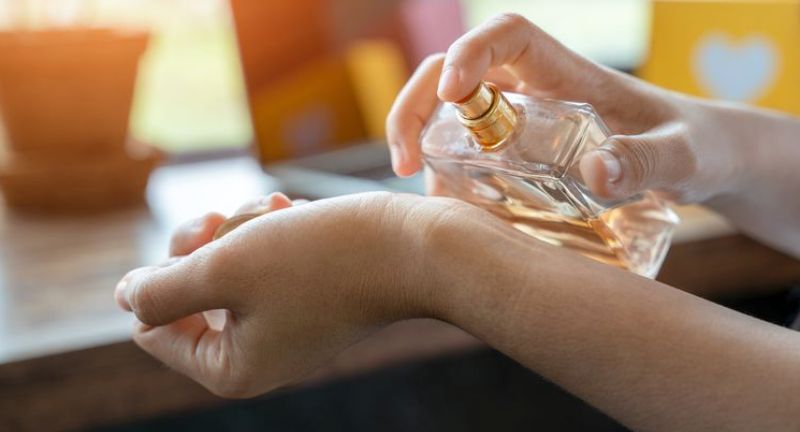
Getty
Discovering a perfume or cologne that enhances your personal style and preferences is a delightful experience. However, applying strong fragrances in confined spaces can be overwhelming and even harmful to individuals with sensitivities or allergies, making it difficult for them to remain in the same area. While this act is often done with no ill intent, it’s important to be considerate about the intensity of personal scents, especially in closed environments.
Telling Someone They Look Skinny

Shutterstock
Commenting that someone looks skinny is typically intended as a compliment or an observation from the speaker’s perspective, without malicious intent. Such remarks can inadvertently perpetuate body image issues, impling that their worth is tied to their appearance and disregarding personal struggles or health issues. recognizing this highlights the importance of considering the impact of our words on others’ feelings and self-perception, promoting a more mindful approach to conversations about body image.
Ignoring Event Dress Code

Getty
Choosing to ignore an event’s dress code demonstrates a lack of consideration for the host’s preferences and the event’s formal or themed intentions. It can be perceived as disrespectful or indicative of an indifferent attitude toward the significance of the occasion and the effort put into organizing it. Dress codes are established to create a cohesive atmosphere, and adhering to them is a way of honoring the event and its significance, showing solidarity and respect for the collective experience.
Not Responding Promptly To Text Messages

Shutterstock
In the current era of communication, not responding immediately to a text message has become a norm, often due to being occupied with work, driving, or contemplating a meaningful reply. However, this practice of leaving messages on ‘read’ can make the sender feel neglected or less important, potentially straining relationships through feelings of rejection or disinterest in the dialogue. This perception can foster misunderstandings and create a divide between individuals, emphasizing the importance of mindful communication.
Inquiring About Why Someone Isn’t Drinking Alcohol

Shutterstock
Asking someone why they aren’t drinking alcohol might seem like a casual inquiry, but it can result in an awkward situation and be seen as intrusive and disrespectful of individual boundaries. This could also put the individual in an uncomfortable position, forcing them to explain possible health issues, personal convictions, or other private matters they prefer not to discuss in social settings. Respecting someone’s decision without pressing for an explanation promotes a sense of comfort and respect for personal autonomy in social situations.
Stopping After Stepping Off An Escalator

Shutterstock
Stopping immediately after stepping off an escalator can create a bottleneck, potentially causing confusion or even accidents for those behind you. This action is often done unintentionally a result of distraction or unawareness, but inconveniences others by disrupting the smooth flow of foot traffic. Being mindful of moving to the side or continuing to walk away from the escalator exit shows consideration for the safety and convenience of others.
Making Plans In Front Of Those Not Invited

iStock
When you discuss plans in the presence of others who are not included, it can inadvertently create feelings of exclusion and diminish their sense of belonging or worth within the group. This behavior overlooks the impact that social dynamics have on individuals’ emotions and relationships. Being mindful of when and where to discuss specific plans is crucial to maintaining inclusive and considerate interactions, ensuring everyone feels valued and respected.
Sending Messages Or Emails Late At Night

iStock
Sending messages or emails late at night might not seem rude to those fine with digital communication at any time. This habit though can be inconsiderate to some as it may intrude on their personal time, implicitly suggesting that your needs or thoughts take precedence over their well being. This action, while perhaps done without malice, also assumes that the recipient is available around the clock, disregarding their boundaries and need for downtime.
Not RSVPing To An Invitation

Shutterstock
Failing to RSVP to invitations by the deadline or the preferred way doesn’t seem like a significant oversight to some. However, this creates headaches and logistical challenges for hosts, making it difficult for them to finalize arrangements. This oversight can be seen as an indication of indifference towards the effort and anticipation the host has put into organizing the event. A prompt RSVP, whether affirmative or negative, shows respect for the host’s efforts and consideration in planning and doesn’t leave the host in a state of uncertainty about attendance.
Driving With High Beams On At Night

Shutterstock
It might be tempting to leave high beams on while driving, especially in poorly lit areas or on mostly empty roads. However, if there are other drivers around, the high beams can temporarily blind other drivers, increasing the risk of accidents. This oversight, while possibly unintended, is perceived as careless and disrespectful of road-sharing etiquette. Using high beams responsibly and switching to low beams when encountering other vehicles demonstrates awareness and consideration for the safety of all road users.
Letting Your Dog Jump On People

iStock
Allowing your dog to jump on people might seem harmless or affectionate, especially if the pet is friendly. Allowing this action can be unsettling or simply unwelcome for some individuals who may have fears, allergies, or just a preference to not have animals invade their personal space. Training pets to behave appropriately in social settings and keeping them under control in public spaces show respect for the community and promote positive interactions.
Pushing Your Opinions As Facts

Shutterstock
Asserting personal opinions as indisputable facts can shut down open dialogue and create an environment where others feel their views are undervalued or dismissed. This approach to conversation, often stemming from a place of passion rather than malice, overlooks the importance of diverse perspectives and the growth that comes from understanding different experiences.
Not Cleaning Up After Your Pet
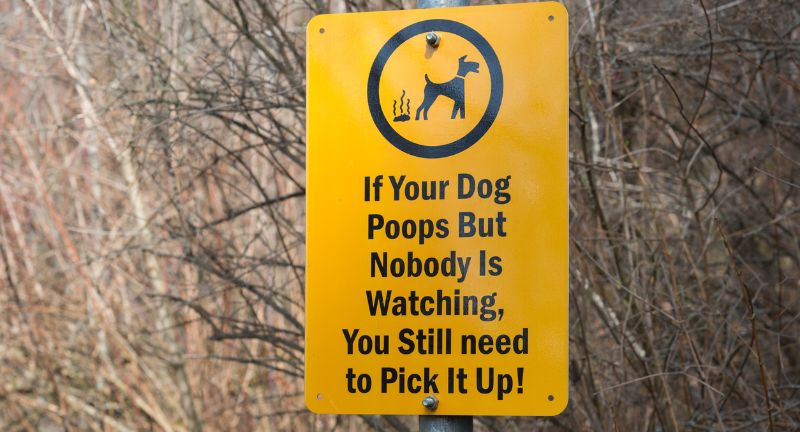
iStock
There are many reasons why someone might not pick up after their pet, ranging from being distracted and lack of bags to being in a rush or simply not caring. Regardless of the reason, this inaction not only poses health risks but also shows a disregard for the cleanliness and enjoyment of communal areas by others. This negligence also shifts the responsibility of maintaining public hygiene onto others and diminishes the quality of shared spaces.
Hogging Shared Resources

iStock
Hogging shared resources, such as gym equipment or communal amenities, prevents others from accessing facilities they have equal rights to enjoy, creating frustration and conflict. This behavior, often a result of not considering the collective needs of a group, undermines the principles of fairness and cooperation that enable shared spaces to function harmoniously.
Not Being Aware Of Other’s Personal Space

Shutterstock
Every Person’s perceptions and preference of personal space is different due to various factors. As a result, it’s possible to
intrude into someone’s personal space without being aware, making them feel uncomfortable and disrespected. Recognizing and respecting the personal space that people maintain around themselves is crucial for fostering mutual respect and comfort in social interactions.
Borrowing Items Without Returning Them

iStock
Some people don’t see this action as rude, especially if they view the borrowed object as something minor or forget about the borrowing over time. This assumption or oversight not only inconveniences the lender but also demonstrates a disregard for their generosity and the value they place on their possessions. This habit can strain relationships, as it may lead the lender to feel their kindness is being taken for granted, potentially making them hesitant to lend in the future.
Forgetting To Say Thank You

Shutterstock
Forgetting to thank someone might not always be perceived as rude, especially in casual interactions or fast paced situations. However, neglecting to thank someone for their help or kindness overlooks the effort they’ve made on your behalf, potentially making them feel their actions were undervalued and unappreciated.
Canceling Plans Last Minute

Shutterstock
It’s universally accepted and understood if someone needs to cancel plans last minute for reasons like an emergency. However, canceling plans without providing a reason can come off as disrespectful of others’ time and effort, especially if they have made specific arrangements or turned down other opportunities. This behavior suggests a lack of commitment and reliability, potentially straining relationships.
Not Introducing Someone That Is New To A Group

Shutterstock
This is a common oversight that’s often unintentional, but can create an awkward situation for everyone involved. This lapse in social etiquette can also create an uncomfortable dynamic within the group, as members may not know how to interact with the unacknowledged individual. Taking a moment to facilitate introductions not only demonstrates consideration and inclusivity but also helps to foster a welcoming environment and smoother social interactions for everyone involved.
Not Acknowledging Service Workers

Shutterstock
Ignoring service workers, such as waitstaff, cashiers, or cleaners, might not seem rude to some individuals, especially if distracted or preoccupied with personal concerns. This behavior overlooks the humanity and hard work of those who play essential roles in everyday convenience and comfort, making them feel invisible and undervalued.
Frequently Checking Phone In Social Settings
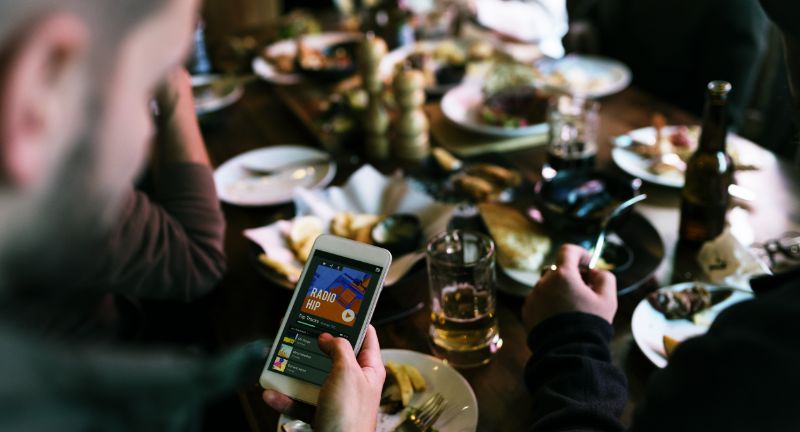
Shutterstock
Constantly checking your phone during personal interactions can be perceived as disrespectful and indicative of disinterest in the conversation. Even if the reason is justifiable, such as expecting an important call, dealing with an emergency, or monitoring a critical situation, your action can be misinterpreted if not communicated. Communication, being present, and engaging with those around you fosters a sense of respect and appreciation.
Eating Before Everyone Has Been Served

Shutterstock
Eating before everyone has been served at the table might not seem rude to some, but it is generally considered a breach of dining etiquette. This action can be seen as impatient and inconsiderate, especially in formal dining settings or when hosting guests. Another result of this action is others feeling uncomfortable or rushed. Waiting for everyone to be served before starting to eat demonstrates respect and consideration for all diners, contributing to a more inclusive and enjoyable meal experience.
Using Speakerphone In Public

Shutterstock
Using speakerphone for conversations in a public place might be convenient for the individual, but forces others to involuntarily listen to private conversations. This action disrupts public ambiance and fails to consider others that are sharing the space. Being mindful of how personal actions affect communal environments is key to maintaining courtesy and respect in public settings.
Overstaying Your Welcome

Shutterstock
Staying beyond the anticipated time as a guest can create discomfort and inconvenience for your host. While often this behavior is a result of misjudging social cues or being unaware of the imposition, it disrupts the host’s personal plans and can strain the hospitality extended. Recognizing and respecting the boundaries of an invitation is crucial to being a considerate guest and maintaining positive relationships.
Interrupting People While They’re Speaking

iStock
Interrupting someone while they’re speaking, even if not intended to be rude, disrupts the flow of conversation and can convey a lack of respect. This action often makes the interrupted individual feel frustrated and dismissed, hindering effective communication and potentially damaging relationships. Even if unintentional, this habit also suggests a lack of active listening and respect for the speaker’s perspective.
Asking Personal Questions In Public

iStock
Posing personal or sensitive questions in a public setting can embarrass the individual being asked, forcing them to address topics they may prefer to keep private. This behavior disregards boundaries and social context, potentially exposing someone to judgment or discomfort in front of others. It shows a lack of discretion and empathy, as it puts the person on the spot and can strain trust and comfort in the relationship.
Not Holding The Door For The Person Behind You
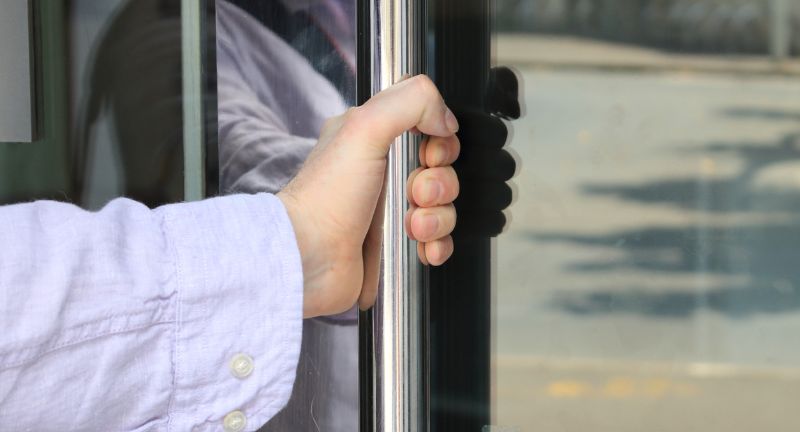
iStock
It is generally understood that holding the door for someone also entering or leaving a building is a simple act of courtesy. Failing to do this can be perceived as a lack of awareness or consideration for others, subtly suggesting that their convenience is not worth a moment of your time. This act, often overlooked as a minor oversight, is rooted in basic etiquette that signifies respect and courtesy in everyday interactions.
Talking Over Others In The Group

Shutterstock
Talking over others might not be perceived as rude by some, particularly in environments where lively debate and rapid conversation are common. It’s important to be aware that this behavior can silence others, creating a discouraging atmosphere where individuals feel undervalued and less inclined to share their thoughts in the future. Though it might stem from enthusiasm or eagerness to express oneself, it’s essential to recognize that effective communication requires both speaking and listening.
Not Using Turn Signals While Driving
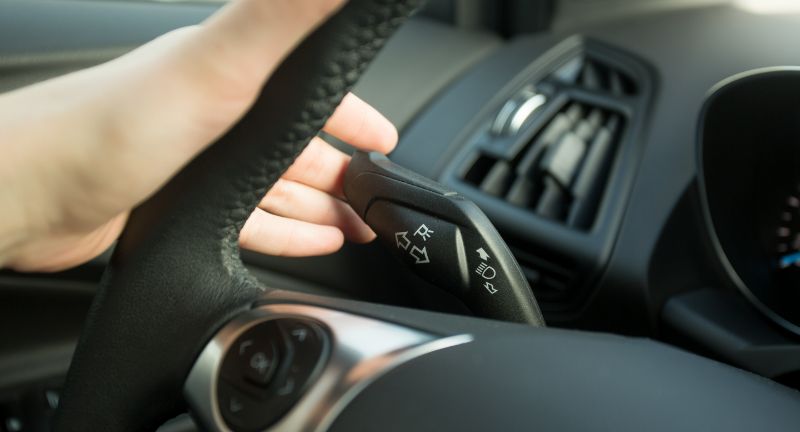
Shutterstock
Many of us have been guilty of not using our turn signals on occasion. Whether accidental or deliberate, not using turn signals when required can be viewed as disregarding the safety and well being of everyone on the road. This is also commonly seen as rude due to the failure to communicate intentions to other drivers, leading to confusion and potentially dangerous situations on the road.
Not Offering Your Seat To Those In Need
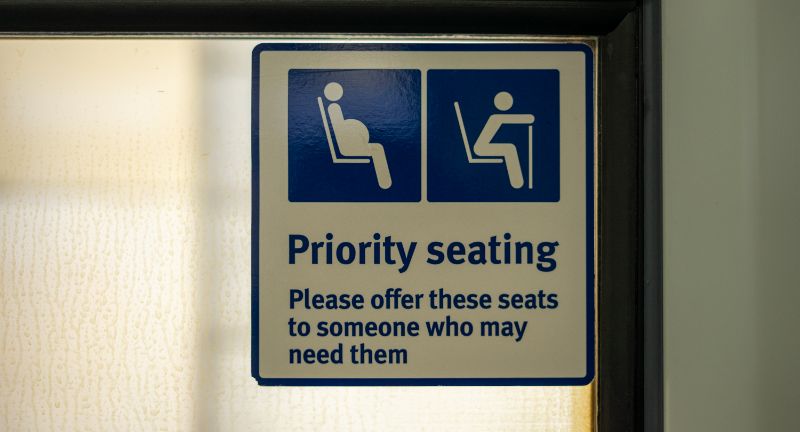
Shutterstock
There are situations on public transportation where someone doesn’t offer their seat to an individual who might need it more. This lack of action usually stems from inattention or reluctance to inconvenience oneself, but it goes against the social contract of looking out for fellow passengers. Offering a seat is a simple yet significant gesture of kindness and respect, enhancing the communal travel experience by prioritizing the needs of others.
Littering

iStock
Littering, even if no one sees it, reflects a disregard for the environment and the community. It suggests a lack of concern for public cleanliness and the well-being of others who share the space. It not only damages natural and urban environments but also imposes the burden onto others who must clean up the mess.
Talking Loudly On The Phone In public Places

Shutterstock
Speaking loudly on the phone in any public setting, especially quiet places such as libraries and waiting rooms, disrupt the etiquette everyone is expected to follow. This behavior can be seen as self-centered, as it places personal conversations above the communal need and respect for quiet.
Leaving A Mess In Public Spaces

iStock
Not taking trash after leaving a public place might not register as rude to some individuals, perhaps under the assumption that others are responsible for maintaining these areas. This inaction not only disregards the communal nature of these areas but also shifts the responsibility of cleaning up to others, who had no part in creating the mess.
Not Covering Your Mouth When Coughing Or Sneezing

iStock
Failing to cover your mouth when coughing or sneezing spreads germs and increases the risk of transmitting illnesses. This oversight in basic hygiene can be perceived by many as rude and shows a disregard for the health and well-being of those around you. Practicing such etiquette is crucial not just as a matter of politeness but as a public health measure, especially in settings where people are in close proximity.
Conclusion

iStock
Acknowledging that some of our everyday actions might be perceived as rude is the first step towards cultivating a more considerate and empathetic approach to our interactions with others. By becoming aware of and adjusting these habits, we can improve our relationships and contribute to a more respectful and understanding community. Ultimately, the effort to recognize and change these behaviors not only enhances our personal growth but also enriches our connections with those around us.








